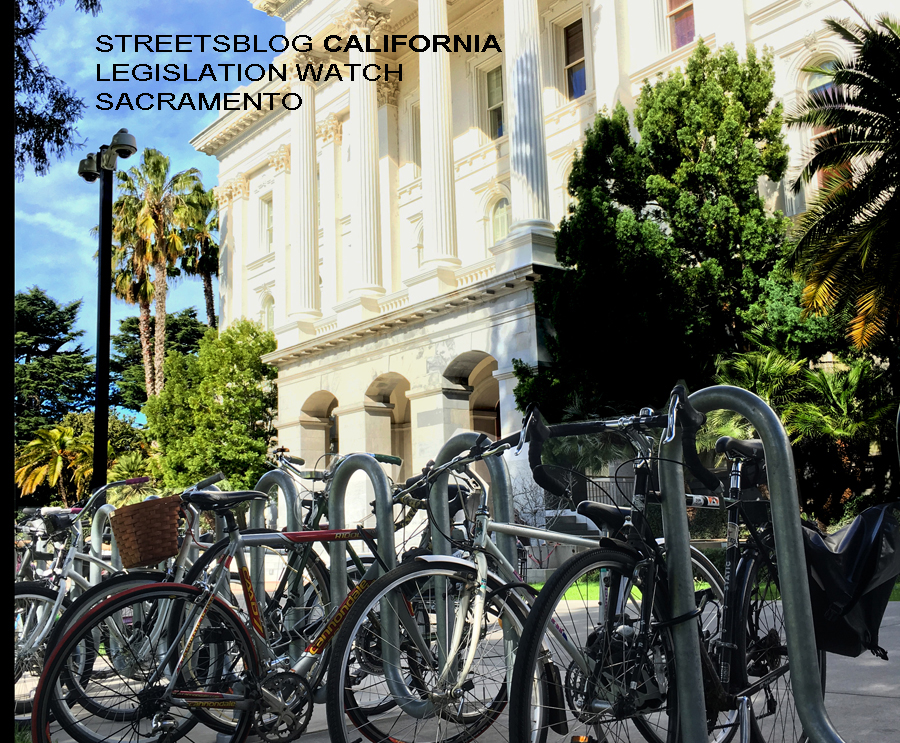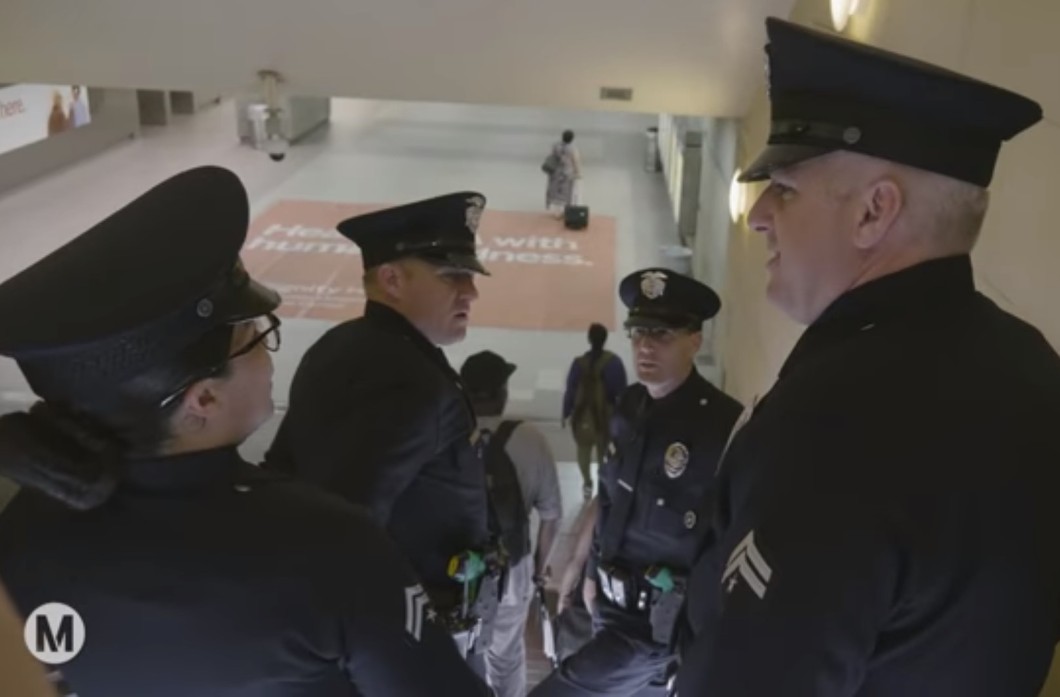A bill calling for more diverse representation among California Transportation Commission members, A.B. 179 from Assemblymember Sabrina Cervantes (D-Corona), has passed both the Senate and the Assembly, and now awaits the signature of Governor Jerry Brown to make it law.
The bill originally called for much stronger rules about commissioners' qualifications, as well as the formation of a transportation justice advisory committee, but it has been considerably watered down in the process of wending its way through the legislature. In its current form, A.B. 179 only calls for the governor to “use every effort” to make sure the CTC “has a diverse membership with expertise in transportation issues,” and that in the process of appointing commissioners he consider factors including “socioeconomic background and professional experience, which may include experience working in, or representing, disadvantaged communities.”
But even that may be too much for Governor Brown. A letter from the Department of Finance [PDF], an office within Brown's administration, hints at reasons he might put forward if he does veto the bill.
Even though it is from the Department of Finance, the letter doesn't oppose the bill on the grounds of unreasonable costs. In fact, DOF acknowledges that simply requiring a more diverse membership would cost nothing. The bill has a provision that calls for hosting two annual meetings in conjunction with the Air Resources Board, and that could maybe possibly cost money—but not necessarily.
No, DOF objects to A.B. 179 because, according to the letter, “it is unclear what benefit would result from reconstituting Commission membership, or in what way the Commission's current membership is inadequate.” Note that this objection doesn't really fall within the DOF's bailiwick, but whatever.
Maybe someone in that office could attend some CTC meetings and listen to the current commissioners. Or they could start by reading a recent Streetsblog article that quotes some of the hostile, tone-deaf speeches commissioners made in response to advocates who brought up principles of transportation justice--principles that a “reconstituted Commission membership” might better understand.
At that meeting, several commissioners implied that equity advocates were ungrateful and that, because they had reservations about the final contents of the gas tax bill, they had somehow forfeited their right to weigh in on how that revenue should be allocated. Commissioner Carl Guardino further said that their advocating for equity in transportation funding was penalizing his city, which doesn't have “pockets of poverty” like other cities.
The DOF letter opposing A.B. 179 goes on to claim that at the local and regional level, transportation planning processes “provide an opportunity for broad participation of the public, including representatives from disadvantaged communities” —with the implication that that should be good enough.
But the state transportation commission not only makes decisions about what kinds of transportation gets funded and where, it also sets guidelines for all of those regional and local planning efforts. If the commissioners don't understand the notion of equity—something that seemed obvious from the last CTC meeting—then they won't take action to counter inequities in California's transportation system, or in its planning processes.
It's important to note at this point that none of these objections apply to CTC staff, which has been doing the massive work of setting up meetings and listening to public input on and formulating all those guidelines. The bill--and this post--are focused on the commissioners themselves.
The current make up of the commission, according to the DOF letter, includes “members with backgrounds in labor organizations, business organizations, construction companies, real estate companies, and local transportation agencies.”
Labor organizations and construction companies, bless their hearts, are enthusiastic supporters of highway spending, because jobs. The real estate companies represented on the commission build sprawling communities that encourage driving and are difficult for transit to serve. The current makeup of the commission, in other words, is supporters of big highway spending. There is no one in a leadership position on the CTC representing the interests of people who don't drive, who don't use highways but live near them, have been displaced by them, and breathe the emissions produced on them. It's almost as if people who don't or can't drive don't exist in California.
And now a new commissioner has been added to the mix. A few weeks ago, Governor Brown filled the seat vacated by Fresno developer Darius Assemi, appointing Paul Van Konynenburg as the thirteenth commissioner. Van Konynenburg is a farmer in Modesto with large landholdings, including peach, cherry, and almond orchards. He also worked to help pass Stanislaus County's recent transportation sales tax Measure L.
Streetsblog has been trying to find out more about his appointment—what the process was, how many people were considered, whether people applied for the empty seat or whether anyone was invited to apply, or if there was even an application process. The governor's office put us off with a bland, uninformative response, despite repeated efforts for a clear answer. They wrote in an email only that
The Governor works to find the most qualified candidates for all appointments, and Paul Van Konynenburg is no exception. In the case of the California Transportation Commission, the Governor also takes into consideration the appointee’s background in an effort to balance the geographic representation of the Commission.
So far all our requests to interview the new commissioner have been turned down.
So it seems fair to say that the current appointment process is shrouded in mystery. Maybe that's what Governor Brown likes, and maybe he just wants to keep it that way. Maybe that's the real reason the DOF is objecting to A.B. 179, which is, in the end, a mild suggestion that the governor consider more than just geographic balance when he's appointing people.
But Governor Brown will not always be governor. He has appointed, or reappointed, most of the current commissioners. They make important decisions that affect the lives of many people. But it is not a balanced commission, and its current members do not understand the transportation justice and equity issues that advocates bring before them.
The CTC is currently involved in creating and finalizing guidelines for spending a huge portion of the new gas tax money from S.B. 1 that the state will begin collecting in November. Chanell Fletcher, Director of Climate Plan, one of the bill's sponsors, says that is another reason why A.B. 179 is so important.
“We have this massive gas tax increase that explicitly says money will go towards disadvantaged communities,” she said. “How then can we not have anyone on the board who speaks for those communities, even as you distribute money to them?”






